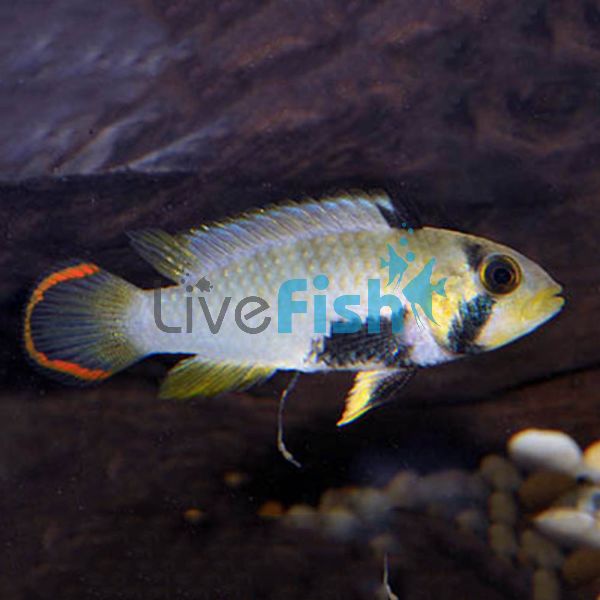Panduro 3cm - Select
Where most Apistogramma species are at times very flashy with extreme fin age or popping colors, the Apistogramma really sets itself apart. Sporting more of a tame and wild look the Panduro has a very interesting color scheme with a beige undertone, lime green dusting, and patches of a mild yellow which compliment the fish overall.
- Buy 2 for $44.01 each and save 10%
- Buy 4 for $39.12 each and save 20%
- Buy 8 for $34.23 each and save 30%
Apistogramma Panduro
Where most Apistogramma species are at times very flashy with extreme fin age or popping colors, the Apistogramma really sets itself apart. Sporting more of a tame and wild look the Panduro has a very interesting color scheme with a beige undertone, lime green dusting, and patches of a mild yellow which compliment the fish overall. The only real contrasting features are the highlights of black in the front section of the fish and the stunning red border on the tail. However, even these colors do note overplay on this elegant species. The Apistogramma pander is also less commonly seen in the aquarium hobby in comparison to other Apistogramma species which make this fish a real treat for collectors of dwarf cichlids or for someone searching for an oddball cichlid to add to their South American biotope. This fish would be a great long-term addition to a display community South American aquarium and would be a really interesting fish to look at after its spot in the aquascape. Trying to find the males and females in this species is possible where adult males have brighter highlights of green and yellow plus more pointed dorsal and anal fins. Females may be lighter in coloration with rounded dorsal and anal fins. However, it is best to get a small group and let them naturally pair off as at a smaller size it is very difficult to tell them apart. This form of Apistogramma is not an extremely shy species and will readily present its personality to its owners and not shy from showing itself off. The Apistogramma Panduro habitat is in the rivers of South America.
Tank Recommendations for your Apistogramma Panduro
The Apistogramma pander only needs a tank of around 20 gallons (75 liters) as they are a small growing fish. This makes them great for nano community aquariums or to just show off a breeding pair of Apistogramma. A sand substrate is advisable as these cichlids actively will sift through the sand looking for food. The Panduro will most probably look and feel best in a biotope-style aquarium with tannin-stained water, botanicals, and lots of natural coverage. hiding areas can be made around small pieces of driftwood, rock caves and they will love a densely planted aquarium as well. This species is most active during the day when the lights are on.
Suitable Tank Buddies
The Apistogramma Panduro is quite peaceful with aggression only ever coming out during breeding. With adequate space, these fish will get along with a wide range of community fish.
Usually Compatible
Tetras, gouramis, corydoras, angelfish, cherry barbs, and common community fish species.
Sometime Compatible
Other Apistogramma species and dwarf cichlids such as rams and large peaceful cichlids such as Uaru or Severums might outcompete for food.
Rarely Compatible
Shrimp and large aggressive species such as African cichlids, Oscars, and Jaguar cichlids.
Feeding your Apistogramma Panduro double red
These Apistogramma are carnivores and they will readily prefer meaty foods. They will consume a wide range of dry and frozen foods. Their diet should contain good quality sinking pellets or flake and be supplemented with frozen food that has high protein such as bloodworm, brine shrimp, and daphnia. Feeding should occur once a day and it is best to do so when the lights are on.
| Scientific Name | Apistogramma panduro |
|---|---|
| Care Level | Moderate |
| Common Names | Apistogramma Pandoro, blue panda apisto, panduros apisto, apisto panduro |
| Diet | Omnivore |
| Fish Family | Cichlidae |
| Lifespan (years) | 10 |
| Max. Length (cm) | 8 |
| Min. Tank Volume (l) | 67 Litres |
| Origin | South America |
| Sociability | Peaceful |
| Venomous | No |
| Water Conditions | 24-26° C, pH 5.0-7.0 |




